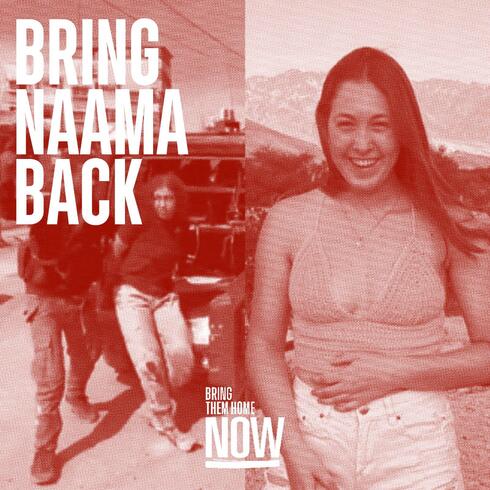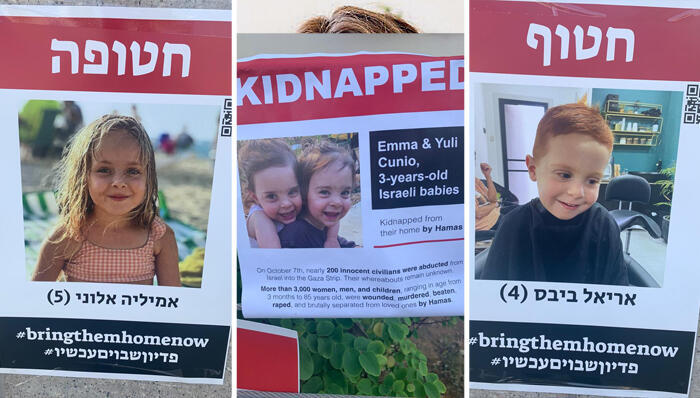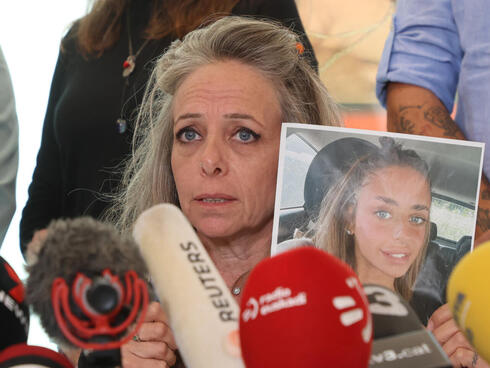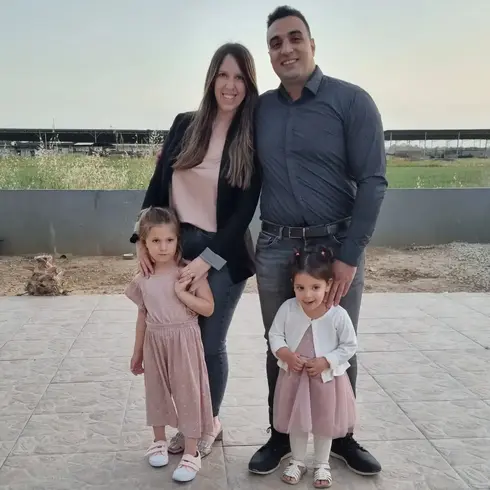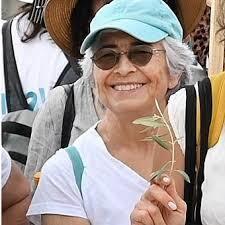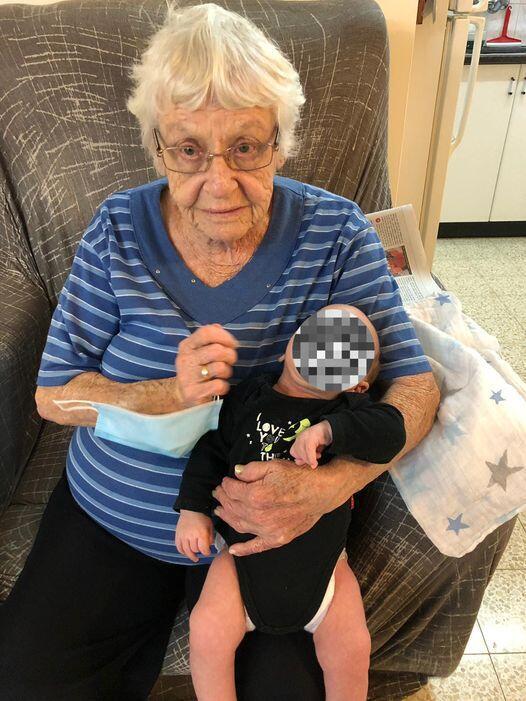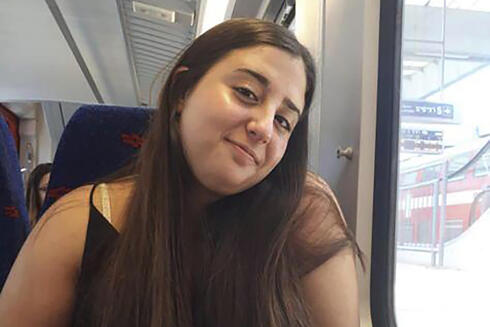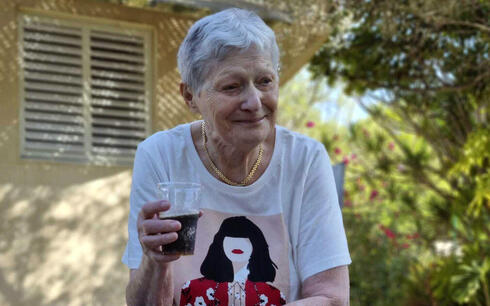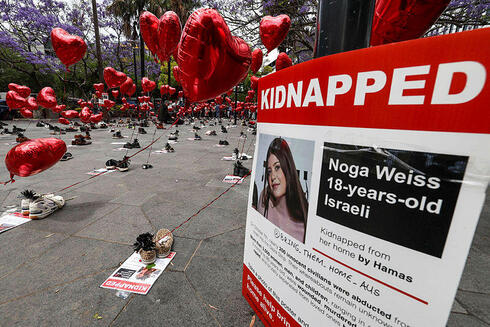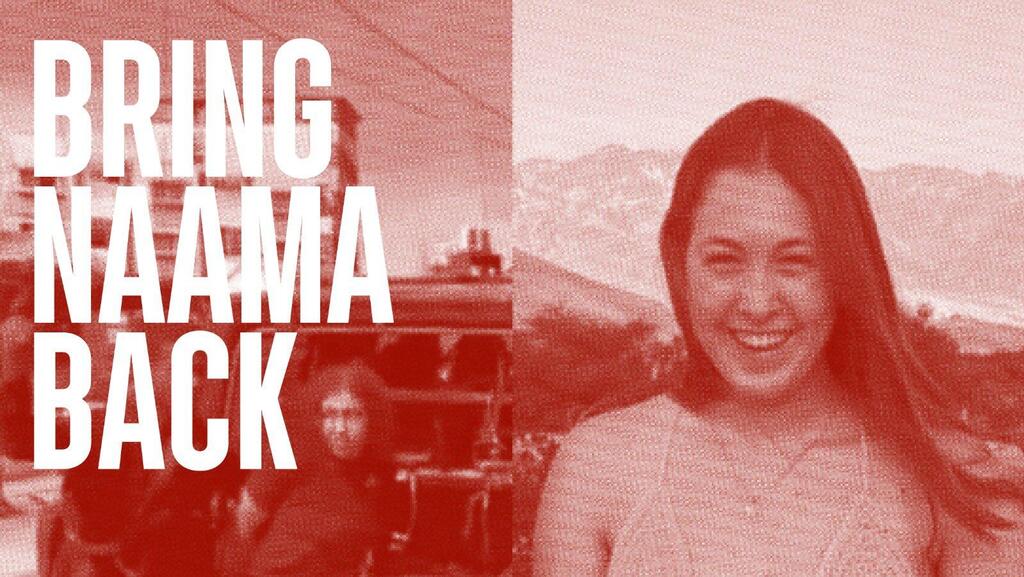
ISRAEL AT WAR
“Israeli women are under brutal attack and there is complete silence”
As Hamas targeted Israeli women and children for slaughter and abduction in their war against Israel, there has been near silence from international human rights and women’s rights organizations. Israeli women’s rights activists say that “there is a clear double standard” as they struggle to obtain a mere recognition of these atrocities.
One of the earliest and most haunting images of Hamas’ October 7 attack on Israel was of a young Israeli woman, bruised and bloody, dragged by her captors from a jeep and paraded to cheers and frenzied calls of “God is great,” as blood flows between her legs. Before the world understood the scope or extent of the horrors that unfolded that terrible day, we knew her face, filmed and shared with the world by her kidnappers themselves. Her name is Naama Levy and she is 19-years-old. Three weeks after her abduction, Naama remains in captivity in Gaza along with the other Israeli hostages captured by Hamas on October 7.
In the weeks since Hamas slaughtered 1,400 people and abducted 239, mainly civilians and including numerous women and children, more is brought to light every day regarding the singular brutality of their crimes. One of the key findings that has emerged is that rape and sexual violence were used as a weapon of war by Hamas in this attack.
“Based on my prior knowledge I anticipated that there would be gender-based violence, but I didn't anticipate the extent of the cruelty and brutality that we now realize was an inherent part of the Hamas massacre,” says Professor Ruth Halperin-Kaddari. An international law expert with a focus on women’s rights, she is a professor at Bar-Ilan University Faculty of Law where she founded and leads the Rackman Center for the Advancement of the Status of Women.
Halperin-Kaddari is adamant that the targeted, grotesque attack of women and children, including mass torture and rape, was “a major goal of the attack. This was a central element in their war against Israel and against Jews.” To harm such people, she says, is viewed by terrorist organizations as “the most effective form of spreading terror within the enemy.”
“There is a very long history of using crimes against women as a weapon of war. From time immemorial, women’s bodies have been seen as symbols of the nation, so the violation of the bodies of women equals the violation of the national body. Such a violation is intended to cause the ultimate national humiliation and disgrace through violating the individual woman,” she says. “Using women as a weapon of war is now clearly recognized as a war crime, certainly a crime against humanity, but it could also amount to genocide.”
Reports of mass rape and sexual violence are based on numerous sources including testimony from survivors of the Nova music festival and elsewhere who saw women raped before being killed or taken hostage, testimony from first responders, the mountain of forensic evidence consistent with torture and rape, and, of course, footage filmed by Hamas themselves. Naturally, there are no first-hand accounts since those who were raped are believed to have been killed or captured by their rapists.
Related articles:
“In one interrogation released \[by the IDF\] the terrorist explains that they were specifically instructed by their commanders to act against the directives of Islam, which forbids harming women and children. Their commanders told them that they must act against their religion’s precepts and target precisely women and children,” says Halperin-Kaddari.
Another arrested terrorist said that “Hamas ordered us to crush their heads and cut them off, \[and\] to cut their legs.” He said that they were given permission to rape women - living and dead. A volunteer with the IDF’s unit for the identification and burial of female soldiers, told the Daily Mail that “there is evidence of mass rape so brutal that they broke their victims’ pelvises – women, grandmothers, children.”
Israeli women ‘deserted’ by international community
For Halperin-Kaddari and other Israelis, especially Israeli women, the shock of these attacks has been doubled by the world’s nonplussed reaction, especially from the human rights community and women’s rights organizations. Most human rights and women’s rights groups have been exclusively focused on the impact of the war on Gaza, and have uttered little or nothing at all regarding the ongoing crimes being committed against Israeli women and children that led to the war in the first place.
“I feel a strong sense of desertion and even betrayal. I knew it would be difficult, and I knew that we had a short window of sympathy…but, I did not anticipate what we are witnessing now, which is simple disregard for what happened on October 7,” she says.
Perhaps the clearest example of this is the response from UN Women, arguably the most senior international organization responsible for the protection of women. UN Women released a statement on October 13 - almost a week after Hamas’ massacre and abduction of the hostages - saying: “UN Women condemns the attacks on civilians in Israel and the Occupied Palestinian Territories and is deeply alarmed by the devastating impact on civilians including women and girls.”
The statement makes no further mention of Israel or Israeli victims, no mention at all of the hostages, and continues to express concern exclusively for the humanitarian situation in Gaza and reiterate their firm support for Palestinian women alone. On October 20 they released a second longer assessment on “the devastating impact of the crisis in Gaza on women and girls,” which makes no reference to the crimes committed against Israeli women.
“We were shocked and amazed that they were not even recognizing the massacre,” says Dr. Cochav Elkayam Levy, an international law expert at Hebrew University and Reichman University where she founded the Dvora Institute for Gender and Sustainability.
In response to UN Women’s October 13 statement, Elkayam Levy drafted a letter in partnership with other organizations accusing UN Women of ignoring “the horrific situation of more than 222 innocent hostages, women, men and children, from the age of 9 months to 85 years old” and “the brutal attack and atrocities led by Hamas against Israeli citizens, including the murdering, raping and slaughtering of hundreds of women, mothers with their babies, children, elder women and people with disabilities.”
“UN Women,” the letter states, “is an international organization that must stand with women of all ethnicities, citizenships, and backgrounds. It is inconceivable that a UN agency that is responsible for women’s rights is ignoring the hostages captured and held by Hamas in the Gaza Strip and the murder of hundreds of innocent people.”
The letter draws attention to the video documentation by Hamas of their crimes including “raped women whose bodies are covered in blood. The films taken by the terrorists who attacked the villages near the border show terrorists ripping the clothes off the women hostages, spitting on them, and sexually abusing them…..The full scope of the sexual abuse of the hostages is not yet fully known and should be fully investigated according to international law.
“We strongly implore UN Women - and all other human rights agencies - to gravely condemn the brutal attack and atrocities committed by Hamas on Israeli citizens as well as the abduction of innocent hostages, to urgently act to protect the special humanitarian rights of women and children, and to do everything in their power to expose and recognize these atrocious and horrific acts of violence against women and girls and to bring the release of all hostages immediately.”
The letter has amassed 140 signatures from women's rights organizations from Israel, Canada, the United States, Brazil, Australia, the UK, Ukraine, Chile, Romania, India, and Mexico. Most of the international organizations are Jewish. Some of the Israeli organizations include The Association of Rape Crisis Centers in Israel, WIZO Women's International Zionist Organization, National Council of Jewish Women, Women Wage Peace, and Women of the Wall.
Both Elkayam Levy and Halperin-Kaddari (who contributed to and is a signatory to the letter) note that this is one of several letters, petitions, and other appeals to various UN human rights agencies and UN committees. All of the letters are non-governmental and are drafted by and signed by NGOs, academics, scholars, and human rights activists.
Elkayam Levy says that she expects to see three things at an international level: recognition, condemnation, and action. “We expected them to express solidarity and offer help. That’s their responsibility, that’s what they’re supposed to do - to assist survivors and hostages. All of the agencies that are involved in humanitarian crises should have at least offered recognition and support. We can’t even get them to the first stage of recognition.”
A double standard without precedent
For women’s rights organizations in Israel, many of whom work closely with their peers and counterparts across the world, the silence of their partners is a crushing blow. One of the signatories to the letter is impact.51, an Israeli women’s health startup studio, founded by entrepreneurs and women’s rights advocates Michal Shalem and Michal Lebenthal Andreson. “We thought that women’s organizations were working together, we were part of coalitions in the last several years changing the ecosystem in order to stop violence against women, bring innovation to women’s health, etc.,” says Shalem.
“Right now, when Israeli women are under brutal attack, there is complete silence. We couldn’t believe it at the beginning. It’s not just that you should stand with Israel, but stand with us as sisters, as women!”
Shalem and Lebenthal Andreson teach a university course about women’s rights and impact entrepreneurship that incorporates UN goals for gender equality. “I was thinking to myself how am I going to stand there teaching about how the UN is working to achieve those goals when I’m looking at what happened and how the UN is remaining silent?” says Lebenthal Andreson.
Halperin-Kaddari, who between 2007-2018 sat on the UN Committee on the Elimination of Discrimination Against Women (CEDAW), during which she served as the Vice-Chair of the committee, says that there is a clear double standard. “My twelve years on the committee gave me a very broad perspective on the situation of women worldwide, including extreme situations of women in conflict areas, the particular vulnerabilities of women in war, and war crimes and atrocities committed against women in numerous parts of the world.”
She notes that when similar crimes against women and children were committed by ISIS against Yazidi women, in the Democratic Republic of the Congo, during the Bosnian Genocide, and the Rwandan Genocide, there was a standard reaction from the UN. “We have precedent and what we went through on October 7 is no less severe in terms of the extremity, the brutality, the cruelty, than any of these other incidents. Of course, it was much much shorter, thank God, but even in such a short time frame, the number of casualties was enormous,” she notes. “The scale, the scope, that this was part of the war plan, the measure of the atrocity - it's worse than ISIS.”
Instead, it appears that in this case alone, UN organizations, including UN Women, have opted for silence. “Many of them have said nothing about the ongoing situation of the hostages, most of whom are civilians taken from their beds, including babies. As a staunch defender of and believer in international law and the role of the UN in protecting human rights, I feel betrayed,” she says. “I would expect the UN body tasked with overseeing the protection of women to address some of the worst forms of sexual violence ever committed against women and children.”
On Friday, CEDAW issued their first statement since Hamas attacked Israel, calling for “the initiation of inclusive peace talks,” for a “cessation of the war” and an “urgently needed humanitarian corridor.” There is no mention of crimes against Israelis or the hostages.
Halperin-Kaddari, who served on this body, says she is “outraged by this statement and deeply disappointed beyond measure.” She notes that she wrote to CEDAW directly with Professor Frances Raday, a law professor at Hebrew University, on October 9 and it took them three weeks to issue any statement.
“I accept the premise that as a UN body they must address both sides to the conflict and relate to its impact on Palestinian women and the humanitarian crisis. But, they totally ignore the ongoing crimes of holding hostages including women and girls, knowing very well (based on prior cases of female hostages) what they might be going through.
"They completely ignore all of the sexual crimes that were committed on October 7 by Hamas, despite the abundance of evidence that exists and that we shared with them directly. This is shameful and it undermines the credibility of the committee. This prevents it from being a productive or relevant authority regarding the protection of women's human rights.”
Implicit in the refusal of these organizations to recognize the crimes committed against Israeli women is a rejection of the premise that these crimes took place at all. This is amid a cascade of Holocaust-denial-like claims that Israel is embellishing or even lying about Hamas’ crimes in the first place, despite the enormous amount of evidence to the contrary. As a result, the lack of response from UN entities is not all that motivates these women’s rights activists. For them, writing appeals, disseminating information, and documenting Hamas' crimes has grown in significance far beyond eliciting a condemnation from any UN body.
“We have a bigger mission - to document these crimes, and to be a source for information about crimes against women and children,” says Elkayam Levy. “I think that as time passes and more and more testimonies are heard both in Israel and around the world, there will be no way to deny what happened. Already what we’ve been exposed to has been horrifying, and it’s only a fraction of what there actually was. Future generations will judge those who reacted with silence and inaction against these crimes.”
“If it happens here in Israel, tomorrow it can happen in your backyard. Israel is just a microcosm in the larger fight against groups like ISIS. What happened to the women of Israel can happen to women everywhere,” says Shalem.
